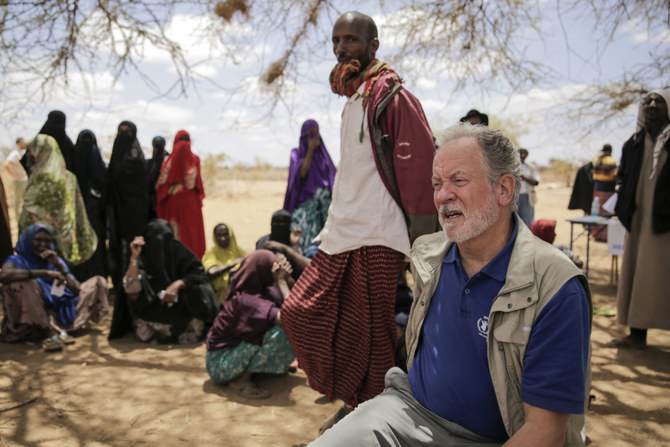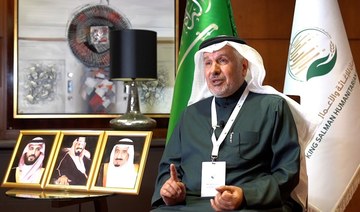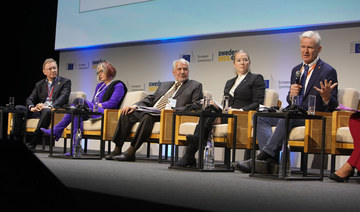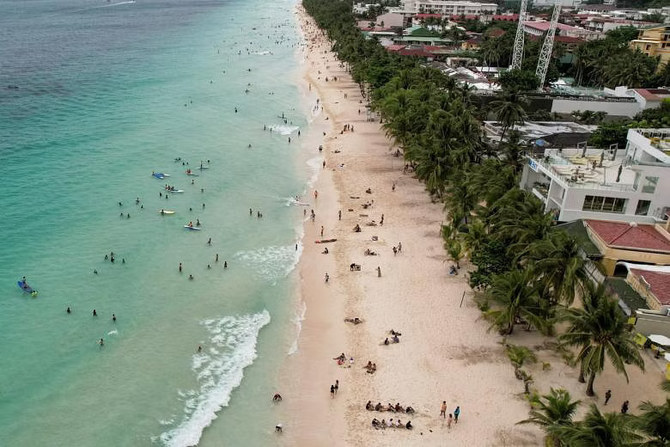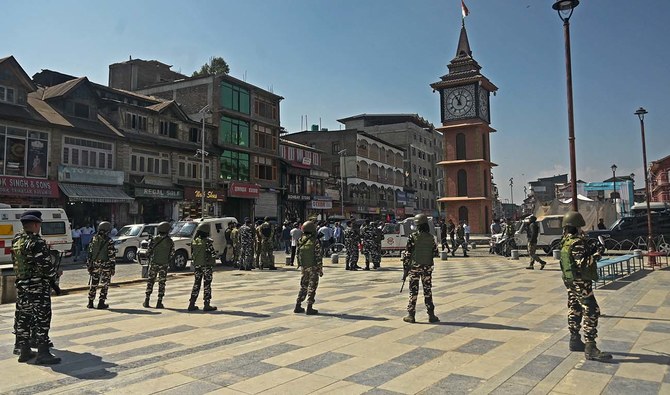UNITED NATIONS: Without billions of dollars more to feed millions of hungry people, the world will see mass migration, destabilized countries, and starving children and adults in the next 12 to 18 months, the head of the UN World Food Program warned Friday.
David Beasley praised increased funding from the United States and Germany last year, and urged China, Gulf nations, billionaires and other countries “to step up big time.”
In an interview before he hands the reins of the world’s largest humanitarian organization to US ambassador Cindy McCain next week, the former South Carolina governor said he’s “extremely worried” that WFP won’t raise about $23 billion it needs this year to help an estimated 350 million people in 49 countries who desperately need food.
“Right at this stage, I’ll be surprised if we get 40 percent of it, quite frankly,” he said.
WFP was in a similar crisis last year, he said, but fortunately he was able to convince the United States to increase its funding from about $3.5 billion to $7.4 billion and Germany to raise its contribution from $350 million a few years ago to $1.7 billion, but he doesn’t think they’ll do it again this year.
Other countries need to step up now, he said, starting with China, the world’s second-largest economy which gave WFP just $11 million last year.
With $400 trillion worth of wealth on the planet, there’s no reason for any child to die of starvation.
David Beasley, WFP chief
Beasley applauded China for its success in substantially reducing hunger and poverty at home, but said it gave less than one cent per person last year compared to the United States, the world’s leading economy, which gave about $22 per person.
China needs “to engage in the multilateral world” and be willing to provide help that is critical, he said. “They have a moral obligation to do so.”
Beasley said they’ve done “an incredible job of feeding their people,” and “now we need their help in other parts of the world” on how they did it, particularly in poorer countries including in Africa.
With high oil prices Gulf countries can also do more, especially Muslim nations that have relations with countries in east Africa, the Sahara and elsewhere in the Middle East, he said, expressing hope they will increase contributions.
Beasley said the wealthiest billionaires made unprecedented profits during the COVID-19 pandemic, and “it’s not too much to ask some of the multibillionaires to step up and help us in the short-term crisis,” even though charity isn’t a long-term solution to the food crisis.
In the long-term, he said what he’d really like to see is billionaires using their experience and success to engage “in the world’s greatest need – and that is food on the planet to feed 8 billion people.”
“The world has to understand that the next 12 to 18 months is critical, and if we back off the funding, you will have mass migration, and you will have destabilization nations and that will all be on top of starvation among children and people around the world,” he warned.
Beasley said WFP was just forced to cut rations by 50 percent to 4 million people in Afghanistan, and “these are people who are knocking on famine’s door now.”
“We don’t have enough money just to reach the most vulnerable people now,” he said. “So we are in a crisis over the cliff stage right now, where we literally could have hell on earth if we’re not very careful.”
Beasley said he’s been telling leaders in the West and Europe that while they’re focusing everything on Ukraine and Russia, “you better well not forget about what’s south and southeast of you because I can assure you it is coming your way if you don’t pay attention and get on top of it.”
With $400 trillion worth of wealth on the planet, he said, there’s no reason for any child to die of starvation.
The WFP executive director said leaders have to prioritize the humanitarian needs that are going to have the greatest impact on stability in societies around the world.
He singled out several priority places — Africa’s Sahel region as well as the east including Somalia, northern Kenya, South Sudan and Ethiopia; Syria which is having an impact on Jordan and Lebanon; and Central and South America where the number of people migrating to the United States is now five times what it was a year-and-a-half ago.



